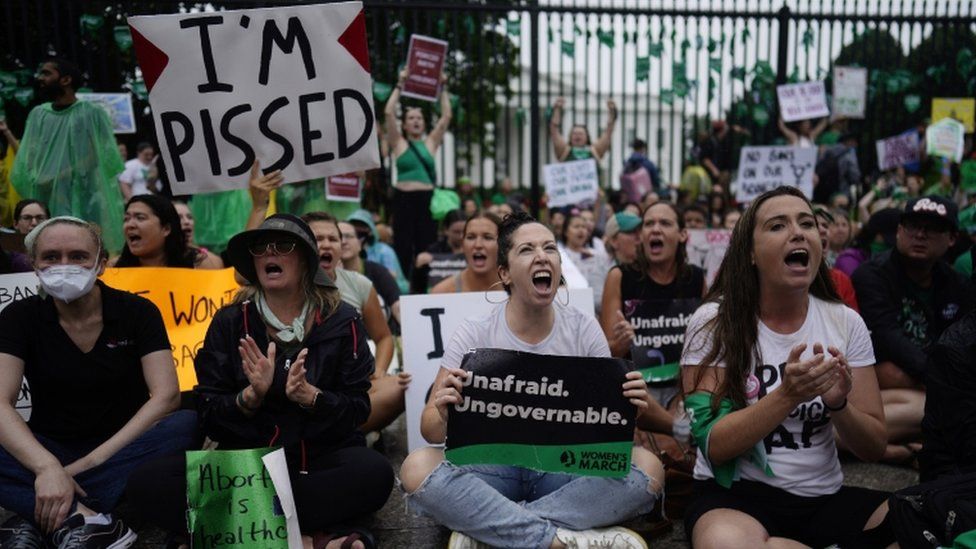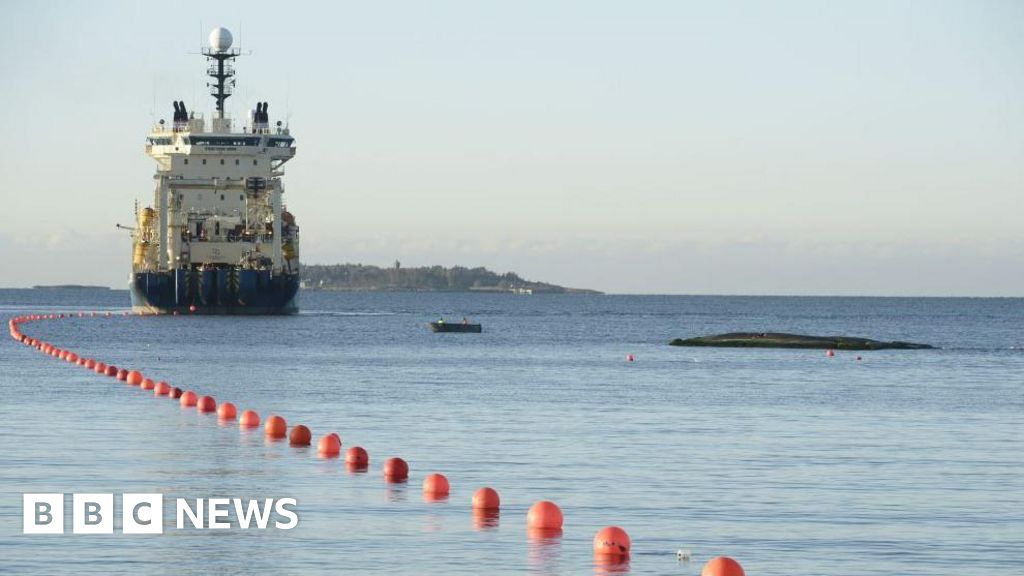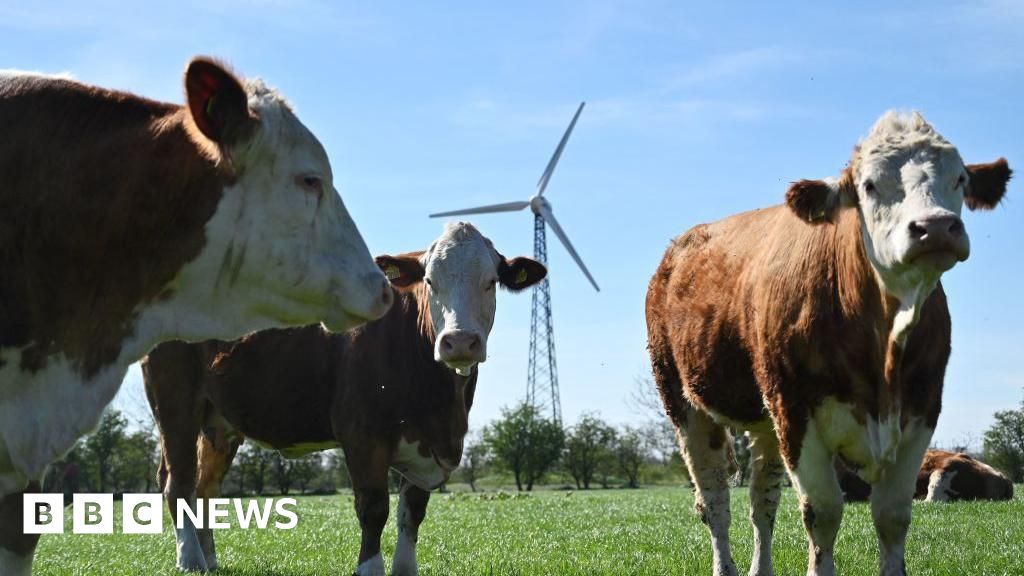ARTICLE AD BOX
By Holly Honderich
BBC News, Washington
 Image source, EPA
Image source, EPA
Some demonstrators tied themselves to the White House fence, risking arrest
Thousands gathered in the US capital on Saturday, marching through pouring rain and risking arrest to protest the reversal of abortion rights last month.
The demonstration comes two weeks after the Supreme Court repealed Roe v Wade - the ruling that had guaranteed abortion access nationwide for nearly 50 years.
Chanting "we won't go back", protesters converged on the White House, with some tying themselves to the gates outside.
An estimated 10,000 people gathered from across the US, organisers said.
Lauren Pierce, 33, an attorney from Dallas, was among them, travelling some 1,300 miles (2,100km) to attend the demonstration.
"There's nothing, to me, more worth fighting for than this cause - our fundamental right to have bodily autonomy," she said. "If that means taking up space and getting arrested then I think it's worth it."
Ms Pierce's home state of Texas is among the 10 US states where abortion has already been prohibited. At least a dozen other states are expected to follow.
Anti-abortion campaigners, many of whom see abortion as "murder", have celebrated the court's decision and the opportunity to outlaw the procedure in large swathes of the country.
Image source, EPA
Image caption,Pro-choice campaigners braved the rain for Saturday's demonstration
Ms Pierce said she had begun to hear of Texans who have found themselves suddenly without reproductive care. The average one-way driving distance for a person in Texas seeking an abortion in the first 20 weeks of pregnancy is now 250 miles, according to the Guttmacher Institute, a pro-choice research group.
"We're blocked in," she said.
Ms Pierce, like many others gathered at the White House, expressed frustration with President Joe Biden and his administration for not doing more to protect abortion access. Indeed, during Saturday's event organised by the Women's March, mention of Mr Biden's Democratic party drew nearly as many jeers as did mention of the Republicans.
On Friday, facing pressure from progressives, Mr Biden signed an executive order directing his health department to protect abortion care, including access to medication abortion and emergency contraception, and safeguards for patient privacy.
Rachel O'Leary Carmona, executive director of the Women's March, said the order was an important first step.
"We're calling on President Biden to continue to take steps to protect abortion nationally," she said. "And if he can't do anything more from behind his desk he should get out into the streets."
But to many pro-choice advocates, Mr Biden's administration has failed to meet the moment after a historic reversal in women's rights.
"This is the first time ever a constitutional right has been taken away," said Helen Miller, 56, from Virginia. "We're here for our daughters, our children, our lives."
Image source, Reuters
Image caption,President Biden has signed an executive order to protect abortion rights
Some 40 million women of reproductive age are expected to lose access to abortion in the coming weeks.
Joanne Morris, 75, took in Saturday's protest from her hot pink wheelchair, holding a cardboard sign. "This boomer believes in choice and freedom," it said.
Standing with her daughter, Lisa, Ms Morris said she had travelled from Pennsylvania for her 16-year-old granddaughter.
"I want to see her have the same choices that I had," she said.
Ms Morris, a retired nurse, was 26 when the Supreme Court recognised a federal right to an abortion. She said didn't believe she would live to see Roe fall. "It feels like the country is headed in the wrong direction," she said.
Image source, EPA
Image caption,Some 40 million women are expected to lose abortion access in their states

 2 years ago
17
2 years ago
17








 English (US)
English (US)